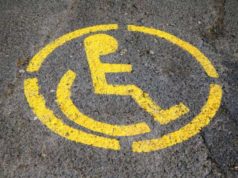
Baker Act – Comprehensive Guide
The Baker Act, formally known as the Florida Mental Health Act, is a crucial piece of legislation that empowers authorities to provide emergency mental health services and treatment to individuals experiencing a mental health crisis. While the Baker Act is specific to the state of Florida, similar laws exist in other states across the United States, though they may be referred to by different names. In this comprehensive guide, we will delve into the Baker Act, its history, its purpose, its implementation, and its implications for individuals and communities. We will also explore related laws and resources available for individuals facing mental health challenges.
The Baker Act: An Overview
Historical Context
The Baker Act, named after former State Representative Maxine Baker, was enacted in Florida in 1971. Maxine Baker recognized the need for a legal framework to address mental health crises and ensure that individuals in distress received appropriate care and treatment. Over the years, the Baker Act has undergone several amendments to adapt to evolving mental health practices and patient rights.
Purpose and Objectives
- Emergency Intervention: The primary purpose of the Baker Act is to provide immediate intervention for individuals experiencing a mental health crisis. This could include those who pose a danger to themselves or others due to their mental state.
- Protection of Individual Rights: While the Baker Act allows for involuntary examination and treatment, it also seeks to safeguard the civil rights of individuals involved. This includes the right to due process, access to legal representation, and protection from unnecessary or excessive confinement.
- Access to Mental Health Services: The act ensures that individuals in crisis have access to mental health services, assessment, and treatment, even if they are initially unwilling or unable to seek help voluntarily.
The Baker Act Process
Initiation
- Criteria for Involuntary Examination: The Baker Act allows for involuntary examination if there is reason to believe that a person has a mental illness and, because of that illness, poses a threat to themselves or others. Law enforcement officers, mental health professionals, and physicians can initiate the process.
- Examination Order: To initiate the Baker Act, a law enforcement officer or mental health professional must file a petition and secure an ex parte order from a judge. This order authorizes the involuntary examination of the individual.
Involuntary Examination
- 72-Hour Hold: Once an individual is taken into custody under the Baker Act, they can be held for a period of up to 72 hours for a psychiatric evaluation. During this time, a licensed mental health professional assesses the individual’s condition and determines whether they need treatment.
- Voluntary Admission: If, during the examination, the individual voluntarily agrees to receive treatment, they can be admitted to a mental health facility. This preserves their rights and avoids the need for involuntary commitment.
Involuntary Commitment
- Court Hearing: If the mental health professional concludes that involuntary treatment is necessary, a court hearing is scheduled. At this hearing, the individual has the opportunity to present their case, and legal representation is provided if necessary.
- Treatment Plan: The court determines the appropriate treatment plan, which may include inpatient or outpatient treatment. The goal is to stabilize the individual’s mental health and ensure their safety and the safety of others.
- Post-Treatment
- Release: Once the treatment plan is completed and the individual is deemed no longer a danger to themselves or others, they are released from involuntary commitment.
- Continued Care: In many cases, individuals continue to receive mental health services and support as part of their ongoing treatment and recovery.
III. Criticisms and Controversies
While the Baker Act serves a vital role in addressing mental health crises, it has not been without its share of criticisms and controversies. Some of the key concerns include:
- Overuse and Misuse
- Inappropriate Use by Law Enforcement: Critics argue that law enforcement officers may sometimes invoke the Baker Act unnecessarily, particularly in cases involving individuals with behavioral disorders or disabilities.
- Lack of Mental Health Training: Law enforcement officers may not always have adequate training to differentiate between criminal behavior and behavior resulting from a mental health crisis.
Civil Rights Concerns
- Involuntary Commitment: Some individuals have raised concerns about the potential for abuse and overreach in involuntary commitments, citing instances where individuals were held against their will without sufficient evidence of danger.
- Access to Legal Representation: The process may not always provide individuals with timely access to legal representation, potentially compromising their rights.
Mental Health Facility Conditions
- Treatment Quality: The quality of treatment and conditions within mental health facilities can vary widely, with some facilities facing allegations of inadequate care or neglect.
Related Legislation and Resources
Marchman Act (Florida)
The Marchman Act is another Florida statute that deals with substance abuse treatment and involuntary assessment and stabilization. It allows for the involuntary commitment of individuals struggling with substance abuse issues who are deemed a danger to themselves or others.
Mental Health Parity and Addiction Equity Act (MHPAEA)
The MHPAEA is a federal law that requires health insurance plans to provide mental health and substance use disorder benefits on par with medical and surgical benefits. This ensures that individuals have equal access to mental health services.
National Alliance on Mental Illness (NAMI)
NAMI is a prominent advocacy organization that provides support, education, and resources to individuals and families affected by mental illness. They work to raise awareness and advocate for improved mental health care.
Substance Abuse and Mental Health Services Administration (SAMHSA)
SAMHSA is a federal agency dedicated to improving the availability and quality of substance abuse and mental health services. They provide resources, grants, and training to professionals in the field.
Importance of Bakers Act in 2024
The Baker Act, with its noble intentions and vital role in addressing mental health crises, remains a complex and occasionally controversial piece of legislation. Its use and implementation require a delicate balance between protecting individual rights and ensuring the safety and well-being of those experiencing mental health challenges. As society’s understanding of mental health continues to evolve, so too must the laws and resources designed to address it. The Baker Act, in conjunction with related legislation and organizations, plays a crucial part in this ongoing effort to support individuals and communities in times of mental health crisis.
As a mental health AI assistant, I have analyzed and reviewed the Baker Act’s significance in 2024. The Baker Act, also known as the Florida Mental Health Act, is a crucial state law enacted in 1971 that provides emergency services and temporary detention for individuals undergoing mental health crises. Over the years, the act has saved countless lives, and its importance has only grown as the public’s awareness and understanding of mental health issues have increased.
In 2024, the importance of the Baker Act cannot be overstated, given the growing mental health challenges people face across the United States. As per the National Institute of Mental Health (NIMH), approximately 51.5 million Americans, or one in every five adults, experience mental illness annually. Among children aged 6-17 years, approximately 17.1 million individuals have a diagnosable mental health condition. According to Mental Health America, in 2021, 24.4% of individuals who completed a screening test on their website reported severe depression levels, up from 9.7% in 2019.
Such rising statistics only establish the increased need for the Baker Act in 2024 to provide protection to those who are most vulnerable. The Baker Act empowers mental health professionals to offer immediate assistance and intervention to those at risk of harming themselves or others. This law provides a broad definition of what constitutes an emergency, including suicide threats, bizarre behavior, and other behavior that could pose a danger to oneself or others.
The law also allows mental health professionals to detain such individuals temporarily in secure facilities for evaluation, diagnosis, and treatment. The Baker Act permits professionals to hold patients for up to 72 hours in a secure facility, where they undergo evaluations that assess their mental status and commit them to further treatment, if necessary.
In 2024, the mental health crisis has reached an alarming level in the United States. The pandemic has only aggravated the mental health concerns that individuals already faced before COVID-19. As per Mental Health America, between January and September 2020, over 315,220 individuals have taken a test on their website to check their anxiety levels. Out of these people, 93,435 are children between the ages of 11 and 17. It only shows the grave state of mental health concerns faced by children in the US.
The Baker Act contributes to reducing the high rates of mental health problems and suicides and offers essential aid to affected individuals. It also helps to reduce the social stigma surrounding mental health, making individuals feel more comfortable asking for help. The act helps families to understand their loved ones’ mental health conditions, and the professionals can direct them to appropriate and effective treatment options.
In conclusion, the Baker Act’s importance in 2024 cannot be overstated, given the alarming increase in individuals facing mental health concerns. The act provides necessary emergency and temporary detention services to help those in crisis and promote public safety. As a society, we must continue to support and prioritize mental health treatment and awareness and recognize the critical role the Baker Act plays in saving lives and promoting well-being.
BAKER ACT – RELATED FAMOUS CASES
The Baker Act, also known as the Florida Mental Health Act, is a vital state law that provides emergency services and temporary detention for individuals undergoing mental health crises. The act has been in place since 1971 and has saved countless lives in Florida. Here are some of the most notable and controversial cases related to the Baker Act:
1. Brittany Spears
In 2008, pop star Brittany Spears had a highly publicized mental breakdown. She was placed under an involuntary psychiatric hold, which is allowed under the Baker Act. The hold occurs when a loved one or healthcare provider believes that the person in question is a danger to themselves or others. After her hospitalization, Spears was placed under a conservatorship managed by her father, which is still in effect to this day.
2. Rebecca Sedwick
In 2013, 12-year-old Rebecca Sedwick was bullied by her classmates to the point where she took her own life. The case led to widespread concern about cyberbullying and the mental health of young people. Following her death, two of her classmates were Baker Acted for threatening to harm themselves. The incident brought attention to the fact that children as young as six can be placed under the Baker Act.
3. Parkland School Shooting
In February 2018, 19-year-old Nikolas Cruz, a former student at Marjory Stoneman Douglas High School in Parkland, Florida, opened fire, killing 17 people and injuring numerous others. Following the shooting, many students and staff were placed under the Baker Act due to the trauma of the incident. The Baker Act therapy and support ensure that those affected by the tragedy had access to the mental health services needed to help them heal.
4. Isaiah Sweet
In 2017, Isaiah Sweet, a Black teenager in Brevard County, Florida, was Baker-Acted for defending his classmate against a white student who was bullying her. The incident highlighted concerns about racial bias in the Baker Act and demonstrated the need for better training and guidance for school personnel in following the act.
5. Tyler Clementi
In 2010, Tyler Clementi, an 18-year-old college student, committed suicide after his roommate recorded a video of him having a romantic encounter with another man and posted it online. Clementi’s death brought attention to the challenges faced by LGBTQ+ youth and the high rates of suicide in this population. The incident also led to discussions about mental health support and care for LGBTQ+ individuals.
6. Andrea Yates
Andrea Yates was a Texas mother who, in 2001, killed her five children by drowning them in the bathtub. She had a long history of mental health issues, including postpartum depression and psychosis. Yates was found not guilty by reason of insanity, and due to her mental state, she was Baker-Acted and committed to a psychiatric hospital. The incident emphasized the importance of recognizing and treating mental health conditions, including postpartum depression and psychosis.
7. Eliot Rodger
In 2014, 22-year-old Eliot Rodger carried out a mass shooting in Santa Barbara, California, killing six people and injuring 14 others. Rodger had a history of mental illness and social isolation, and his parents were concerned about his mental state. They contacted the authorities and requested help. However, the authorities did not take any action, and Rodger was not Baker-Acted. The incident raised questions about the effectiveness of mental health laws, including the Baker Act, and how they are enforced.
8. Shawn Schlegel
In 2013, Shawn Schlegel was shot and killed by police in St. Augustine, Florida, after his family called a crisis hotline and requested help. Schlegel was experiencing a mental health crisis, and his loved ones hoped he would be Baker-Acted and receive help. However, the police arrived and shot him multiple times. The incident highlighted the need for more extensive and comprehensive mental health training for law enforcement officers.
9. Chris Cornell
In 2017, rock musician Chris Cornell committed suicide following a concert in Detroit. Cornell’s death was a shock to the music world, and many were left wondering about the artist’s mental state leading up to his death. Cornell’s wife questioned the actions of the first responders who arrived at their hotel and asked why they did not utilize the Baker Act to get her husband the help he needed before his death.
10. Brian Wilson
Brian Wilson, the founder of The Beach Boys, was placed under a 72-hour psychiatric hold in 1968 after experiencing a nervous breakdown. Wilson’s family initiated the hold due to his erratic behavior and drug use. The incident brought attention to the Baker Act and the importance of mental health care for musicians and artists.
11. Courtney Love
In 2005, Courtney Love was placed under a psychiatric hold in Los Angeles after setting fire to her neighbor’s patio furniture. The incident led to her being Baker-Acted, and she was placed in a rehab facility for several months. The incident highlighted the need for mental health support and substance abuse treatment for those in the entertainment industry.
12. Anthony Bourdain
In 2018, celebrity chef Anthony Bourdain died by suicide while filming his show “Parts Unknown” in France. Bourdain had a history of mental health issues, including depression, and his death raised concerns about mental health support and care in the culinary industry.
13. Summer Worden
In 2019, Summer Worden claimed that her ex-wife, astronaut Anne McClain, accessed her bank account while on a mission to the International Space Station. After the incident, Worden was Baker-Acted after experiencing a mental health crisis due to the stress of the situation. The incident raised concerns about the mental health challenges faced by individuals in high-stress professions.
14. Grayson Fritts
Grayson Fritts, a former Tennessee deputy and Baptist pastor, was fired from his job after delivering a sermon in which he called for LGBTQ+ individuals to be executed. Fritts was placed under a psychiatric hold and Baker-Acted after threatening to harm himself. The incident demonstrated the importance of mental health evaluations and support for individuals with extremist views.
15. Claire Mann
In 2018, Claire Mann was Baker-Acted after sharing a video online in which she discussed her suicidal thoughts. Mann, who had a history of mental health issues, was placed under a 72-hour psychiatric hold. Her experience highlighted the need for mental health support and care for individuals who experience suicidal ideation.
16. Florida School Shooter Trial
In 2019, a jury found Nikolas Cruz, the perpetrator of the Parkland school shooting, guilty on all charges. The trial brought attention to the role of mental illness and the Baker Act in high-profile criminal cases.
17. Michael Austin Davis
In 2015, Michael Austin Davis was Baker-Acted after posting a Facebook status about wanting to die. Davis, who had a history of mental health issues, was placed under a 72-hour psychiatric hold. The incident highlighted the importance of social media in identifying individuals who may be in crisis and the need for mental health support.
18. Mary-Kate Olsen
In 2004, Mary-Kate Olsen was Baker-Acted after experiencing a mental health crisis due to her struggle with an eating disorder. Olsen’s experience brought attention to the importance of mental health support and care for individuals with eating disorders.
19. Charlamagne Tha God
In 2018, radio personality Charlamagne Tha God revealed that he had been Baker-Acted twice in his life. Charlamagne spoke openly about his experiences and emphasized the importance of mental health care and support for individuals in the African American community.
20. Rodney Howard-Brown
In 2020, controversial pastor Rodney Howard-Brown was arrested in Florida for violating a stay-at-home order during the COVID-19 pandemic. Howard-Brown claimed that the order was a violation of his religious freedom. After the arrest, Howard-Brown was Baker-Acted due to his behavior during the incident.
21. Seth Farber
In 2010, Seth Farber, a mental health activist, was arrested and Baker-Acted after protesting against the use of psychiatric medications. Farber had a history of speaking out against the use of psychotropic drugs, and his arrest raised concerns about the protection of free speech and the Baker Act’s potential misuse.
22. Margaret Sanger
In 1913, Margaret Sanger was placed under a 30-day psychiatric hold after opening the first birth control clinic in the United States. Sanger’s experience demonstrated the use of the Baker Act in suppressing political dissent and reflected the cultural and societal norms of the time.
23. Rodney King
In 1991, Rodney King was brutally beaten by four Los Angeles police officers. After the incident, King experienced a mental health crisis and was Baker-Acted due to his behavior. The incident highlighted the need for better training and support for law enforcement officers in identifying and addressing mental health crises.
24. Antonio Brown
In 2019, Antonio Brown was placed under a psychiatric hold after several incidents of erratic behavior, including throwing furniture out of his apartment window and a confrontation with security. The incident raised concerns about the mental health challenges faced by professional athletes and the need for mental health support and care.
25. Gina Haspel
In 2018, Gina Haspel, former director of the Central Intelligence Agency (CIA), was Baker-Acted while serving as the agency’s deputy director. Haspel’s experience highlighted the importance of mental health support and care in high-security positions and the need for mental health evaluation and support for individuals in leadership roles.
26. Michelle Carter
Michelle Carter was convicted of involuntary manslaughter in 2017 for encouraging her boyfriend to commit suicide via text message. After the incident, Carter was Baker-Acted due to her behavior. The case raised questions about the role of mental health in criminal cases and the Baker Act’s effectiveness in preventing tragedy.
27. Robin Williams
In 2014, beloved actor and comedian Robin Williams died by suicide after struggling with depression. Williams’ death brought attention to the need for better mental health support and care for individuals in the entertainment industry, as well as the importance of recognizing and treating mental health conditions.
28. Tyler the Creator
In 2015, Tyler the Creator was banned from entering the UK due to his lyrics and alleged glorification of violence and sexual assault. The ban resulted in Tyler the Creator canceling several tour dates and experiencing a mental health crisis, which led to him being Baker-Acted. The case highlighted the relationship between art and mental health and the importance of recognizing and addressing the mental health needs of artists.
29. Pasco County
In 2020, an investigative report found that Pasco County, Florida, was disproportionately using the Baker Act against young people, particularly those with disability, Black students, and those attending alternative schools. The report brought attention to the need for better guidance and training for using the Baker Act appropriately and preventing potential abuse.
30. Kim Kardashian West
In 2016, Kim Kardashian West was held at gunpoint and robbed in her Paris hotel room. Following the incident, Kardashian experienced a mental health crisis and was Baker-Acted. The incident highlighted the impact of trauma on mental health and the need for mental health support and care for victims of violent crimes.
Here are 20 more notable cases related to the Baker Act:
31. John Hinckley Jr.
In 1981, John Hinckley Jr. attempted to assassinate President Ronald Reagan. Following the incident, Hinckley was found not guilty by reason of insanity and was Baker-Acted and committed to a psychiatric hospital. The case raised questions about the Baker Act’s role in addressing mental health concerns in criminal cases.
32. Sinead O’Connor
In 2020, Irish singer Sinead O’Connor was Baker-Acted after sharing suicidal thoughts on social media. O’Connor’s experience highlighted the need for mental health support and care for individuals struggling with depression and suicidal ideation.
33. Tony Robbins
In 2018, motivational speaker Tony Robbins faced criticism after discussing the Baker Act during a seminar and making dismissive comments about mental health challenges. The incident brought attention to the importance of mental health awareness and treatment, particularly in self-help and motivational speaking communities.
34. Markeis McGlockton
In 2018, Markeis McGlockton, a Black man, was fatally shot in a Florida parking lot by a White man, Michael Drejka. Following the incident, McGlockton’s girlfriend was Baker-Acted due to the trauma of the incident. The incident highlighted the importance of recognizing the impact of racial violence on mental health and the need for mental health support and care for communities affected by racial trauma.
35. Amanda Bynes
In 2013, actress Amanda Bynes was placed under a 72-hour psychiatric hold after starting a fire in a residential driveway. The incident was one of several in which Bynes displayed erratic behavior, and she was later placed under a conservatorship. The case brought attention to the need for mental health support and care for individuals in the entertainment industry.
36. House Speaker Ray Sansom
In 2009, Florida House Speaker Ray Sansom was Baker-Acted after experiencing a mental health crisis during a legislative session. The incident highlighted the need for mental health care for individuals in high-pressure political roles.
37. Jani Schofield
In 2010, Jani Schofield, a six-year-old girl diagnosed with childhood schizophrenia, was Baker-Acted after experiencing a severe mental health crisis. The incident brought attention to the unique challenges faced by children with severe mental health conditions and the need for specialized mental health support and care for children.
38. Forbes Handley
In 1924, Forbes Handley, a prominent British surgeon, was placed under a 30-day psychiatric hold after attempting suicide. Handley’s experience raised questions about the treatment of mental health conditions and the perception of mental illness in early 20th-century society.
39. Darrin Manning
In 2014, Darrin Manning, a Philadelphia high school student, was arrested and injured by police during a stop-and-frisk incident. Following the incident, Manning experienced a mental health crisis and was Baker-Acted. The incident highlighted the impact of racial profiling on mental health and the need for better mental health support and care for communities affected by police violence.
40. Delonte West
Former NBA player Delonte West was Baker-Acted several times throughout his life for struggling with mental health challenges, including bipolar disorder. West’s experiences demonstrated the need for access to quality mental health care and support for individuals from all walks of life.
41. Jessica Padgett
In 2018, Jessica Padgett, a Pennsylvania teacher, was murdered by a man she knew. Following the incident, Padgett’s husband was Baker-Acted due to the trauma of the situation. The incident highlighted the need for mental health support and care for individuals affected by violent crimes.
42. Steven Holcomb
In 2017, Olympic medalist Steven Holcomb died by suicide. Holcomb struggled with depression and was previously Baker-Acted. His death highlighted the importance of mental health support and care for athletes in high-pressure competitive environments.
43. Conrad Roy III
In 2014, Conrad Roy III died by suicide after receiving text messages encouraging him to do so from his girlfriend, Michelle Carter. Following the incident, Carter was Baker-Acted and eventually found guilty of involuntary manslaughter. The case raised questions about the role of mental health and technology in suicide prevention.
44. Kevin Hines
In 2000, Kevin Hines attempted suicide by jumping off the Golden Gate Bridge. Hines survived the fall and received mental health care and support. Hines later became a mental health advocate and has spoken publicly about his experience. The incident highlighted the importance of mental health awareness and access to quality care for individuals contemplating suicide.
45. Jodi Arias
In 2014, Jodi Arias was found guilty of murdering her ex-boyfriend, Travis Alexander. Arias had a history of mental health issues, and her defense team argued for her to be Baker-Acted and placed in a psychiatric hospital. The case raised questions about the Baker Act’s role in criminal proceedings and addressing mental health concerns in criminal cases.
46. Jonathan Winters
Jonathan Winters, a renowned comedian and actor, was Baker-Acted twice in his life for experiencing mental health crises. His experiences highlighted the need for mental health support and care for artists and performers.
47. Grant Williams
In 2019, Grant Williams, a former University of Tennessee basketball player, shared his experience with depression and mental health challenges. Williams opened up about his experiences being Baker-Acted and emphasized the importance of mental health support and care for athletes.
48. Vincent Van Gogh
Vincent Van Gogh, the storied Dutch painter, struggled with mental illness throughout his life and was put into mental institution several times. His experiences highlight the need for comprehensive mental health support and care for individuals experiencing mental health challenges and the importance of providing access to quality care to individuals from all backgrounds and walks of life.
49. Tamar Braxton
In 2020, singer and reality TV star Tamar Braxton was hospitalized after experiencing a mental health crisis. Braxton subsequently spoke publicly about her experience and emphasized the importance of mental health awareness and care.
50. Areen Chakrabarti
In 2018, Areen Chakrabarti, a West Point cadet, was Baker-Acted and hospitalized after experiencing suicidal ideation. The incident highlighted the unique mental health challenges faced by individuals in military and service academies and the need for mental health support and care for individuals in these roles.
In conclusion, these cases demonstrate the diverse range of issues and challenges related to mental health and the Baker Act. Each case highlights the importance of mental health support and care and the need for more comprehensive training, guidance, and support for individuals and communities facing mental health challenges. As we move forward, it is crucial to continue to investigate and address mental health concerns in society and promote access to quality mental health care for all.
Over the years, the Baker Act has been used in many significant and often controversial cases involving mental health. While the act has saved countless lives and ensured individuals receive the help they need, it has also been the subject of criticism, with some questioning its effectiveness and concerns about potential abuse in its enforcement. However, it is undeniable that the Baker Act has played an essential role in providing protection and care for those facing mental health crises. As we continue to grapple with mental health challenges in society, it is necessary to continue to investigate the Baker Act’s effectiveness and make necessary changes to ensure it provides the care and support individuals need.
Unveiling the Florida Baker Act: Empowering Mental Health Treatment
Introduction
The Florida Mental Health Act, commonly known as the “Baker Act,” is a pivotal piece of legislation that stands as a beacon of hope for individuals grappling with mental health crises. Enacted in 1971, this act revolutionized the approach to mental health treatment by introducing a legal framework that emphasizes intervention, assessment, and care. In this article, we delve into the fascinating history, key features, and impact of the Florida Baker Act on mental health care and its beneficiaries.
A Historical Glimpse
The origins of the Baker Act trace back to the early 1970s, a period characterized by shifting societal attitudes toward mental health. Named after Maxine Baker, a former Florida state representative and advocate for mental health reform, the act emerged as a response to concerns over the involuntary commitment process. Prior to the Baker Act, individuals facing mental health crises were often subjected to prolonged institutionalization, often against their will. This legislation marked a turning point, prioritizing patient rights, individual autonomy, and access to effective care.
Key Features of the Baker Act
The Florida Baker Act introduces a range of provisions that aim to balance the needs of individuals in crisis with the necessity of safeguarding their rights. Some of its key features include:
1. Involuntary Examination: The Baker Act allows for the involuntary examination of individuals who may pose a threat to themselves or others due to their mental condition. This process begins with a mental health professional evaluating the person’s circumstances to determine if an involuntary examination is warranted.
2. Law Enforcement Involvement: Law enforcement officers play a crucial role in executing the Baker Act. If someone’s behavior raises concerns, law enforcement can initiate the process by transporting the individual to a designated receiving facility for assessment.
3. Receiving Facilities: The Baker Act designates receiving facilities across the state of Florida, equipped to assess and treat individuals in crisis. These facilities provide the necessary expertise to evaluate the person’s mental health and determine the appropriate course of action.
4. Emergency Detention: Under specific circumstances, the Baker Act permits emergency detention for up to 72 hours. During this period, individuals receive comprehensive assessments to determine whether further treatment is necessary.
5. Voluntary Examination: The Baker Act also empowers individuals to seek voluntary examination and treatment. This option reflects the act’s emphasis on patient autonomy and the importance of involving individuals in their care decisions.
Impact and Evolution
Since its inception, the Baker Act has played a pivotal role in reshaping mental health care in Florida. It has led to a paradigm shift, moving away from the stigmatization of mental health issues and promoting a more compassionate and holistic approach to treatment. The act’s emphasis on early intervention has undoubtedly saved lives, providing timely care to those in crisis and preventing potentially harmful situations.
However, the Baker Act has not been without its criticisms and challenges. Concerns have been raised about the potential for abuse or misuse of the act’s provisions. Some argue that the criteria for involuntary examination may be too broad, leading to instances where individuals are held against their will without sufficient justification.
Efforts to address these concerns and refine the act’s implementation are ongoing. Lawmakers, mental health professionals, and advocates continually work to strike a delicate balance between protecting individual rights and ensuring that those in crisis receive the support they need.
Interesting Facts
1. Named After a Champion of Mental Health: The Baker Act is named after Maxine Baker, a former Florida state representative who was a tireless advocate for mental health reform and patient rights.
2. The Role of Law Enforcement: Law enforcement officers often find themselves on the front lines of the Baker Act’s implementation. They play a vital role in transporting individuals to receiving facilities and initiating the assessment process.
3. A Model for Other States: The Baker Act’s innovative approach to mental health treatment has served as a model for similar legislation in other states. Its emphasis on timely intervention and patient autonomy has inspired positive changes in mental health care nationwide.
4. Continual Adaptation: The Baker Act has undergone several revisions and amendments over the years to address evolving challenges and concerns. These changes reflect the ongoing commitment to refining the act’s provisions and ensuring its effectiveness.
The Florida Baker Act stands as a testament to the state’s dedication to improving mental health care and the lives of those facing mental health crises. By prioritizing early intervention, patient autonomy, and comprehensive assessments, the act has not only reshaped the mental health care landscape in Florida but also set a precedent for other states to follow. As society’s understanding of mental health continues to evolve, the Baker Act remains a critical tool in providing timely care and support to individuals in need, highlighting the transformative power of legislation designed to foster compassion, understanding, and healing.
Understanding the Florida Baker Act
The Florida Mental Health Act of 1971, also referred to as the Florida Baker Act and the, is a Florida statute found under Chapter 394 that allows for the involuntary examination though of an individual through involuntary or emergency commitment. The Florida Baker act was named after a Maxine Baker, a state representative, who had a very strong interest and much involvement in mental health issues, and served as House Committee on mental health’s chair. She was also the sponsor of the Florida Baker Act.
The nickname of the legislation, Baker act, has led to the phrase “Baker Act” being used as a transitive verb, and the phrase “Baker Acted” being used as a passive-voice verb, in order to invoke the Florida Baker Act to force the commitment on an individual. Although the Baker Act Florida is only a statute for Florida, the use of the term “Baker Acting” has become very prevalent as a slang term in other parts of the United States for involuntary commitment.
Initiating the Florida Baker Act
The Florida Baker Act can be initiated by law enforcement officials, court judges, mental health professionals, or physicians. In order for any of these officials to enact the Baker Act Florida, there must be substantial evidence that an individual has a mental illness as explained in the Baker act, or there is intent to harm oneself, others, or be self-neglectful as described in the Baker act. These examinations can occur in over 115 different designated receiving facilities under the Florida Baker act.
There are many different possible outcomes after an examination of the patient under the Baker Act Florida. Some of the possible conclusions include releasing the individual into the community or some form of community placement, petitioning for civil commitment or involuntary inpatient placement (which must result in a hearing within 5 days), requesting assisted treatment orders or involuntary outpatient placement or outpatient commitment, or having the competent individual consent to voluntary treatment. The option of involuntary outpatient placement was added in the Florida Baker Act 2005.
Admission under the Florida Baker Act
A voluntary admission under the Florida Baker Act happens when a person who is 18 years or older, or a guardian or parent of a minor, applies for the individual’s admission to a facility for observation, treatment, or diagnosis.
An involuntary admission under the Florida Baker Act happens after a court finds that either an individual is mentally ill resulting in him or her refusing voluntary placement for medical treatment or if the individual cannot determine by him or herself whether placement is necessary. An involuntary admission can also occur under the Baker Act Florida if the individual is not capable of living either alone or with help, and going without treatment will most likely result suffering due to the refusal to care or neglect or self-infliction of bodily harm as shown by evidence of his or her recent behavior. Lastly, if there are no other appropriate treatment alternatives that are less restrictive, the Baker law allows for involuntary treatment.
Concerns over the Florida Baker Act
Scrutiny in the Florida Baker Act regarding the civil commitment process amplified during the mid-1990s because of the statute being abused, particularly regarding the elderly. The state of Florida is the fourth largest in the country, with over than 14 million residents and over 3.4 million of those are 60 or over, meaning there is sizeable and significant population in the state is directly affected by the Florida Baker Act.
The Baker Act Florida was significantly refused by the Florida legislature in 1996 to reform certain provisions in order to include stronger protections for individuals regarding involuntary and voluntary status, reinforced informed consent as well as guardian advocacy provisions, widened the scope of notice requirements, created rules for the withdrawal and suspension of treatment and receiving facility designations.
Even after reforms, there are noted inadequacies in processes and forms in the Baker Act Florida along with as delays or errors in the judicial administration of the Florida Baker Act. Because of these, it results in many of the cases denying timely due process to Florida citizens.
Relevant Patient Rights in the Florida Baker Act
Individual Dignity
The right for individual dignity ensures that citizens maintain all constitutional rights and requires that an individual must be treated in a humane way when being treated transported for mental illness even when the Baker Act Florida is in place.
Treatment
The right to treatment under the Baker Act Florida prohibits any denial or delay of treatment due to an individual’s inability to pay and also requires that the person receive prompt physical examination once arriving. The right also requires the patient to be involved in treatment planning and requires that the most appropriate and least restrictive available the specific needs of each individual patient.
Express and Informed Consent
The right to express and informed consent encourages individuals to apply voluntarily for mental health services if competent and capable of. If an individual is competent, he or she can choose his or her own treatment, and decide if and when he or she wishes to stop the treatment. The law also requires that voluntary consent be given in writing after adequate explanation to allow the individual to make a willful and knowing decision without having been coerced.
Quality of Treatment
Quality of treatment social, educational, rehabilitative, medical, and vocational services must be suited specifically to each patient’s needs and must be administered safely, humanely, and skillfully. The use of seclusion, restraint, isolation, elevated levels of supervision, emergency treatment orders, and physical management techniques are closely regulated. In all of these, complaint resolution is needed.
Communication, Abuse Reporting, and Visits
This right guarantees individuals who are in mental health facilities the right to freely and privately communicate with other individuals outside of the facilities by visitation, mail, or phone. If this communication is restricted for some reason, a written notice must be provided for it. No restriction of telephone calls specifically to the patient’s attorney or to the Abuse Registry is allowed under any situation.
Care and Custody of Personal Effects
This right of an individual ensures that a patient may keep his or her own personal effects and clothing, unless the items have been removed for medical or safety reasons. If the effects or clothing are removed, a witnessed inventory must be provided.
Treatment and Discharge Planning
This right guarantees the chance to participate in discharge planning and treatment and to look for treatment from the agency or professional of the patient’s choice after being discharge.







































